
Media are at the heart of contemporary life. From social media to print, from websites to television, from search engines to apps: our understanding of the world is shaped by media.
Media have a major impact not only on how we communicate with one another, but also on how societies are organised: culturally, politically and economically. This academic programme therefore studies the informative and social function of media and conceives 'culture' in its anthropological definition: as the ideas, customs and social behaviour of particular (groups in) societies.
You will acquire knowledge and a variety of theoretical perspectives on the way different media platforms are structured, how they operate and how they relate to each other; how media systems are underpinned politically and economically; and how patterns of media use, production and content develop and change. You will learn to apply and critically reflect on different types of academic research methods on a variety of topics. In addition, you will also get acquainted to the professional fields related to media, develop your professional skills to help you perform in media-related internships and jobs.
The programme's distinctive features are:
Students get familiar with different relevant media platforms and industries and with Media Studies as an academic discipline, as well as acquiring the necessary academic skills.
| Semesters | ||||
|---|---|---|---|---|
| CoursesCourse Catalog > | 1a | 1b | 2a | 2b |
| Media, Culture and Society (5 EC) | ||||
| Media Platforms and Industries (10 EC) | ||||
| Studying Media in Everyday Life (5 EC) | ||||
| Academic Skills (5 EC) | ||||
| Media History (5 EC) | ||||
| Imagining the Digital (5 EC) | ||||
| Professional Writing (5 EC) | ||||
| Introduction to Media Studies (10 EC) | ||||
| Media Spaces and Practices (5 EC) | ||||
| Social Lab (5 EC) | ||||
In the second year, the emphasis shifts to in-depth theoretical and methodological training. In addition to the compulsory courses, you take a profile of your choice within the Theory Pathways course. Depending on student numbers, the choices include: Visual Culture, Cultural Industries, Digital Cultures, Journalism Studies or Politics and Global Citizenship.
| Semesters | ||||
|---|---|---|---|---|
| CoursesCourse Catalog > | 1a | 1b | 2a | 2b |
| Analysing Media Texts (5 EC) | ||||
| Audiovisual Culture (5 EC) | ||||
| Analysing Media Production and Use (5 EC) | ||||
| Digital Curation (5 EC, optional) | ||||
| Journalistic Writing and Storytelling (5 EC, optional) | ||||
| Media Entrepreneurship (5 EC, optional) | ||||
| Political Action in the Network Society (5 EC) | ||||
| Technology and Creative Destruction (5 EC) | ||||
| Web Design (5 EC, optional) | ||||
| (New) Media Archives (5 EC, optional) | ||||
| Media Ethnography (5 EC, optional) | ||||
| Media Theory I: Mediatisation and Effect (5 EC) | ||||
| Social Media Analysis (5 EC, optional) | ||||
| Statistics in Media (5 EC, optional) | ||||
| RS Audiovisual Culture (10 EC) | ||||
| Media Theory II: Form and Technology (5 EC) | ||||
| Transmedia Production (5 EC) | ||||
Students do (semi-)independent research as well as make a choice as to which minor (university minor; faculty minor; career minor, including a placement; minor abroad) they would like to follow.
| Semesters | ||||
|---|---|---|---|---|
| CoursesCourse Catalog > | 1a | 1b | 2a | 2b |
| Minor (elective) (15 EC) | ||||
| Minor (elective) (15 EC) | ||||
| RS Media Studies (10 EC) | ||||
| Thinkers and Theories I (5 EC) | ||||
| BA Thesis Media Studies (10 EC) | ||||
Throughout the curriculum there are three distinctive learning pathways: a theoretical, methodological and a professional learning pathway. These aim to provide students with the combination of a solid knowledge base, substantial understanding of a diversity of theoretical perspectives, sound methodological training, and a thorough preparation for the labour market. Students earn 150 ECTS credits in their major, 30 ECTS can be filled with a minor during the third year.
| Programme options |
|---|
| Minors (minor) The fifth semester of your studies is dedicated to your Minor: a coherent set of future-oriented course units. It prepares you for a follow-on Master's degree program or for entering the labour market. You can opt for a Career Minor, a Minor abroad, a University Minor or a Faculty Minor. |
| University of Groningen Honours College (honours program) The Honours College will give talented, motivated students the chance to be challenged even more by following Honours programmes and taking part in numerous other activities. The Honours College comprises a broadening part and a deepening part and has a study load of 30 ECTS credit points besides the 180 ECTS credit points from your regular Bachelor programme. |
To further encourage the international profile of the students, the programme structure allows students to spend one semester at a partner university abroad in the third year of their studies. The Department offers exchange programmes within the framework of the Lifelong Learning Erasmus and Marco Polo.
If you have passed the VWO (pre-university education) exam in English, you satisfy the language requirement.
If you have passed the VWO (pre-university education) exam in English, you satisfy the language requirement.
If you have passed the VWO (pre-university education) exam in English, you satisfy the language requirement.
If you have passed the VWO (pre-university education) exam in English, you satisfy the language requirement.
Language requirement English: Minimum requirement of TOEFL iBT 90 (with a minimum of 21 on all items), or IELTS 6.5 (with a minimum of 6 on all items). Cambridge C1 Advanced or C2 Proficiency with a minimum score of 180. For more information, see: https://www.rug.nl/let/studeren-bij-ons/bachelor/aanmelding-en-inschrijving/language-requirements-ba
The degree programme will organize a matching procedure. Attendance is optional. The advice is not binding.
The Faculty of Arts believes students can decide for themselves whether they match with their chosen programme based on the available bachelor programme information, by visiting the Open Days, and by participating in a Webclass and/ or Student for a Day. If you are unable to attend one of these activities, a final opportunity for matching is to contact one of the students of the programme in June.
If you have any further questions about matching, check out: www.rug.nl/matching
| Type of student | Deadline | Start course |
|---|---|---|
| Dutch students | 01 May 2025 | 01 September 2025 |
| 01 May 2026 | 01 September 2026 | |
| EU/EEA students | 01 May 2025 | 01 September 2025 |
| 01 May 2026 | 01 September 2026 | |
| non-EU/EEA students | 01 May 2025 | 01 September 2025 |
| 01 May 2026 | 01 September 2026 |
The Faculty of Arts believes students can decide for themselves whether they match with their chosen programme based on the available bachelor programme information, by visiting the Open Days, and by participating in a Webclass and/ or Student for a Day. If you are unable to attend one of these activities, a final opportunity for matching is to contact one of the students of the programme in June.
If you have any further questions about matching, check out: www.rug.nl/matching
| Specific requirements | More information |
|---|---|
| previous education |
A Dutch VWO diploma, a German Abitur, an International Baccalaureate diploma, a European Baccalaureate or another diploma that is sufficient for acceptance to a Dutch university. For other VWO-equivalent qualifications, see: https://www.rug.nl/education/application-enrolment-tuition-fees/admission/procedures/application-informatie/with-non-dutch-diploma/entry-requirements/bachelor-entry-requirements/vwo-equivalent-qualifications. Students with a Dutch 'hbo propedeuse' diploma also need to meet the language requirements mentioned below. |
| other admission requirements |
Language requirement English: Minimum requirement of TOEFL iBT 90 (with a minimum of 21 on all items), or IELTS 6.5 (with a minimum of 6 on all items). Cambridge C1 Advanced or C2 Proficiency with a minimum score of 180. |
For all admission-related questions, feel free to contact our admission officer via arts.ba.admission rug.nl.
| Type of student | Deadline | Start course |
|---|---|---|
| Dutch students | 01 May 2025 | 01 September 2025 |
| 01 May 2026 | 01 September 2026 | |
| EU/EEA students | 01 May 2025 | 01 September 2025 |
| 01 May 2026 | 01 September 2026 | |
| non-EU/EEA students | 01 May 2025 | 01 September 2025 |
| 01 May 2026 | 01 September 2026 |
If you want to continue with a Master's degree programme after your graduation, as most students do, you will have a wide range of programmes to choose from. With a Bachelor's degree in Media Studies, you have access to the following Master's tracks at the University of Groningen:
As a graduate of the BA Media Studies you have acquired the skills you need for the job market of the 21st century: creativity, critical thinking, communication, collaboration and commitment. You could start your career in media or the creative industry, or in any other field that has job openings, which might lead to jobs, such as, strategy consultant, social media analist, policy advisor and digital content producer. Employers, whether in profit or non-profit organizations, are looking for peo
Advise on the e-consulting strategy for a major health institution.
Develop the website and the social media campaigns for a commercial broadcasting organisation
Develop and optimize the digital product range for a medium sized youth and education publisher.
Develop and implement the social media strategy for a non-profit crowd sourcing organisation.
Produce audiovisual content for a digital television channel.
Our Media Studies staff implements diverse research projects in the field of Media Studies, sometimes collaborating with other international universities based in cities such as Sheffield and Cardiff. During the bachelor's programme you will learn about the staff's research projects with themes such as social media and politics; media literacy; startup culture; datafication and the music industry and more. Such knowledge feeds into the research seminars and the specialisation courses.
By integrating the research projects into the programme, you will acquire knowledge of theories and methodologies from experts in the field, and learn to apply this in your own research projects.
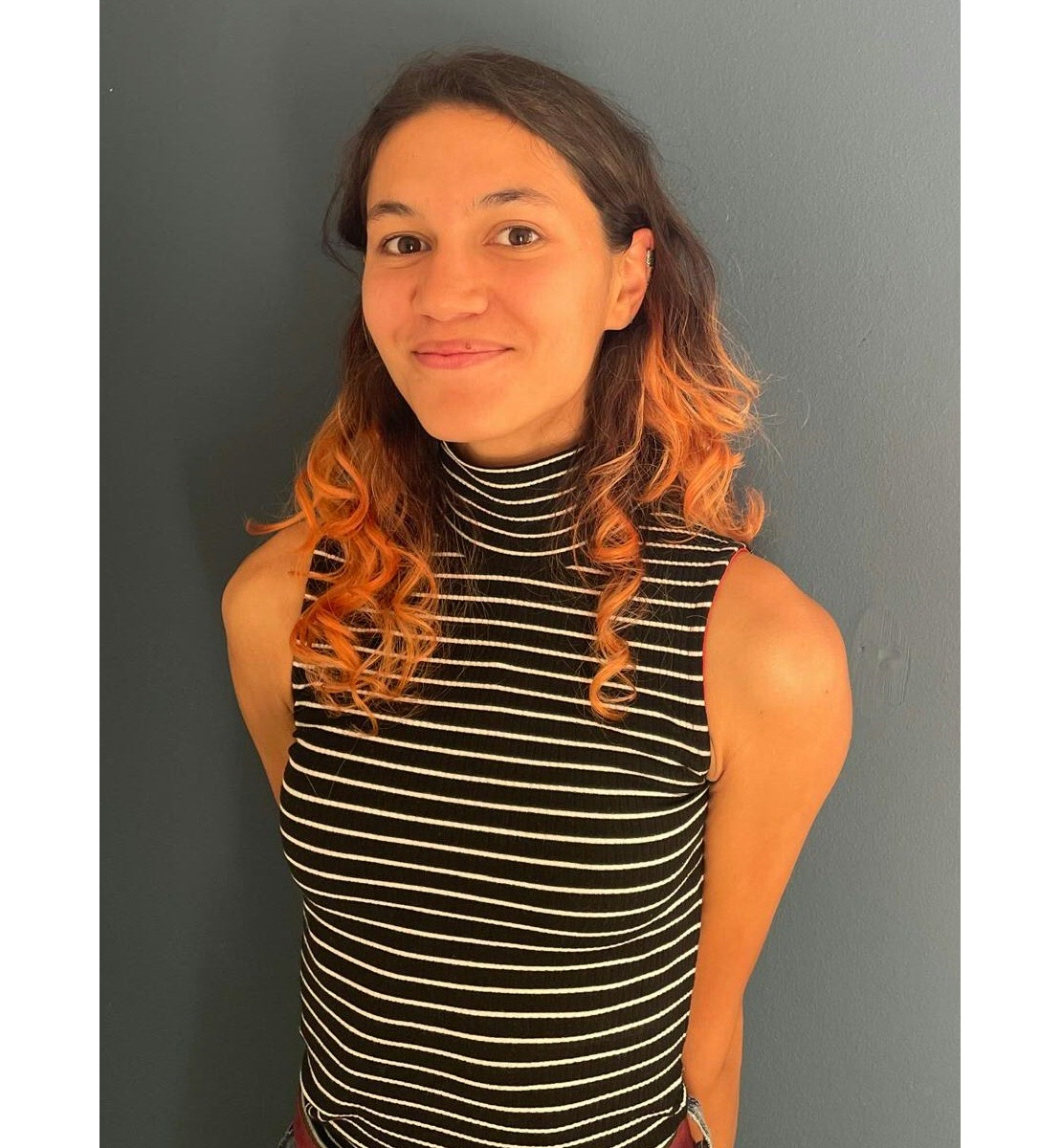
I am Ingrid Stefan, a third-year Media Studies student and an aspiring journalist from Romania. When I’m not writing, reading, or researching - whether it’s for uni or UKrant - I love to pack my bags and travel as much and as far as possible. Actually, I’m almost constantly planning my next trip somewhere. I’m also a fashion enthusiast and enjoy going on a thrifting adventure every once in a while, whether it’s in Groningen, Amsterdam, or even the secondhands in Vienna. Though Groningen is great for thrifting and there are a lot of opportunities for rebranding yourself on a budget.
I chose Media Studies because I knew I wanted to be a journalist since I was 16, and was looking for a programme that could provide training in that direction. What helped the most in choosing this programme was a mix of thorough research into the course catalogue and participation in the Webclass, during which I could experience bits and pieces of a course every week and do a short assignment. Given that I was still living in Romania, that provided a good glimpse of what Media Studies in Groningen feels like.
Read more about Ingrid and why she chose to study Media Studies in Groningen!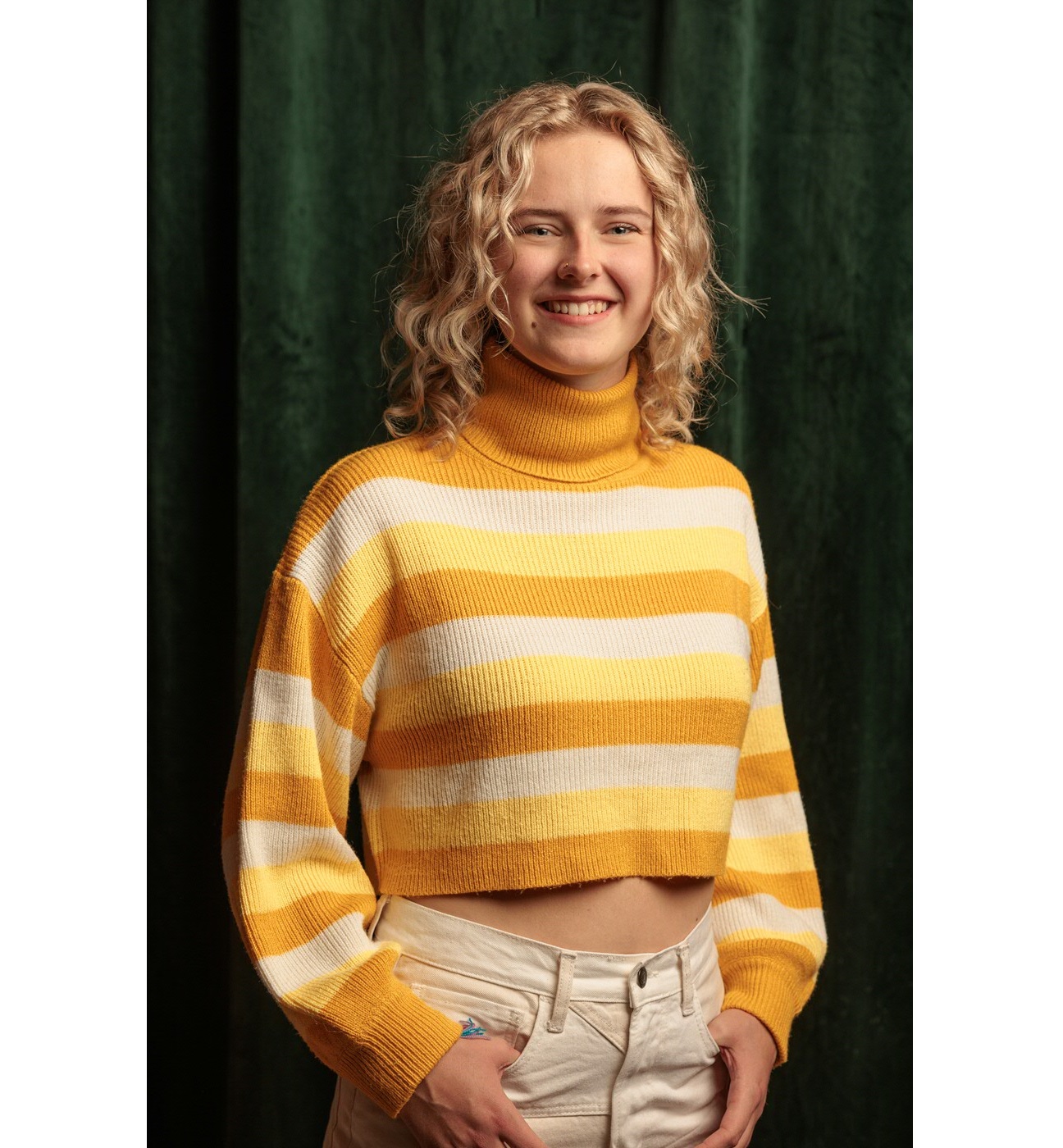
Hi! My name is Melissa Jongman, I am a third-year student of the BA Media Studies programme. I really enjoy politics and all sorts of music and film. Besides this I like reading books, painting, dancing and playing volleyball. I am an active member at a student association, where I made a lot of friends. In addition to studying, I work multiple jobs at the University, which I really enjoy.
At first, I had some doubts about what to study. I knew I wanted something modern, close to my interests and related to society. When I went to the Open Day for Media Studies everything clicked. The study is very up-to-date and keeps on renewing itself in topics that are relevant in the time we live, making it way more interesting to write about the topics for assignments. The classes are very interactive and make it easy to make friends. The study is about everything that can be considered media, from books, to films, from music, to photos. In the first year you go over every different facet of media and in the second year you can choose what you find most interesting about media. This is what makes the study so much fun, you get an understanding about everything related to media and the connection to society. It is so interesting to see how society is impacted by everything happening online and how that changes the way we look at the world. For me it was most interesting to learn about feminism, the way scenes are staged and learning how to write both academically as professionally.
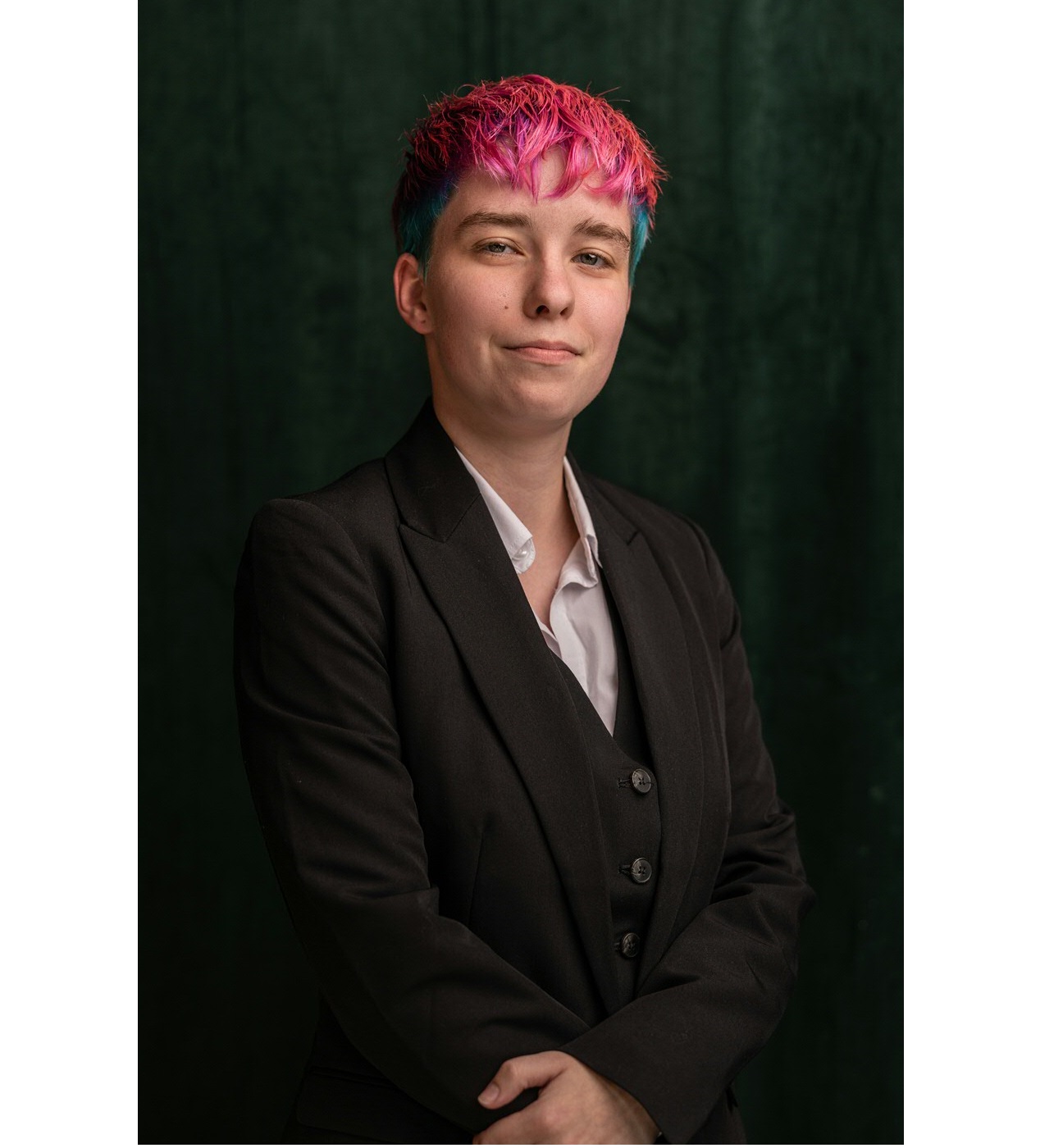
Hi everyone! My name is Veronika, I am a 21-year-old 3rd year student of Media Studies. I am originally from Prague, Czech Republic. Last year I was on the board of MESA, which led to me wanting to become the Student Ambassador of my programme as I really enjoyed representing what is important to me. Therefore, I wanted to continue doing that even after my Board year was over.
In my free time, I enjoy reading, creating digital art, and going on trips–no matter where to or for how long. I am currently the servant of one cat, but I plan to add at least one more to that count in the near future.
I chose Media Studies because it offers a great foundation for any other subject of study related to media. In this programme, you get to try out different aspects of working with media including the academic but also professional aspects of it. You are encouraged to find your own place in the world of media, which was a great help for me as I learnt that there are plenty of career paths that do not lead to simply working for a newspaper or becoming a researcher. It is a fun programme that prepares you for a future within the field of media and opens your eye to all the different possibilities.
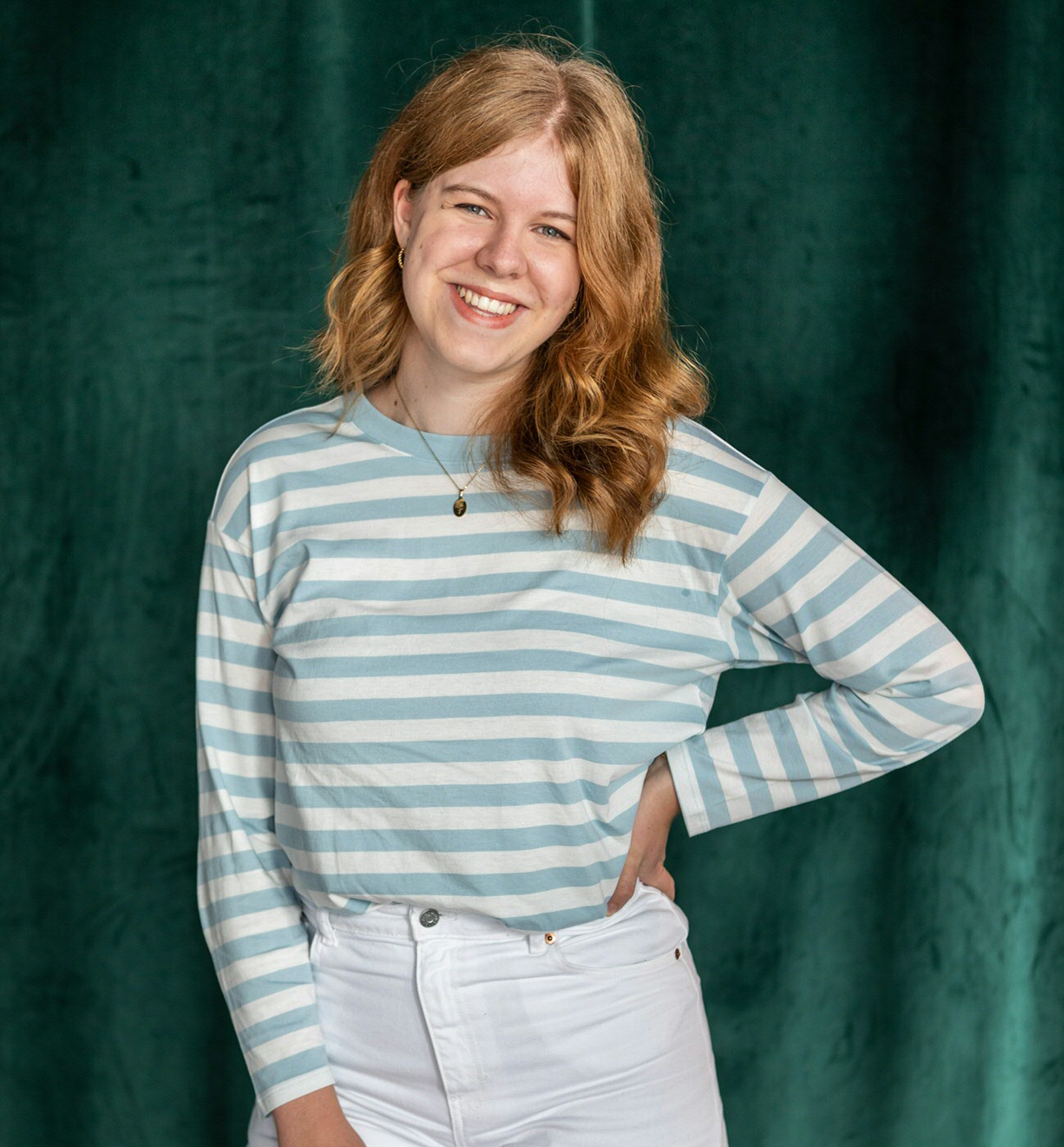
Hi, my name is Marlies Hogeveen, I'm 19 years old and a second-year student of the bachelor Media Studies. I'm a big lover of both analogue and digital media. I love to read and write, but I'm also an enthusiastic producer of my own videos for my YouTube channel, where I document my life as a university student and talk about my other interests. I have a fascination for all things British and I would love to live there someday.
I eventually decided to study Media Studies because I noticed that all of my interests were combined in this programme. Not only was I eager to learn about the different creative industries in the media field and its the social approach towards media. Every time I’m doing my readings or assignments, I’m reminded of the topicality and social importance of the topics I learn about. I would never want to miss out on all of the things I’ve learned about for instance power structures in society, race theory and feminism in relation to media. Media have such a powerful role in the way we understand our world, and now more than ever, people have a say in how media are produced as well. This makes Media Studies a highly relevant field of study if you are interested in the dynamics of representation of society.
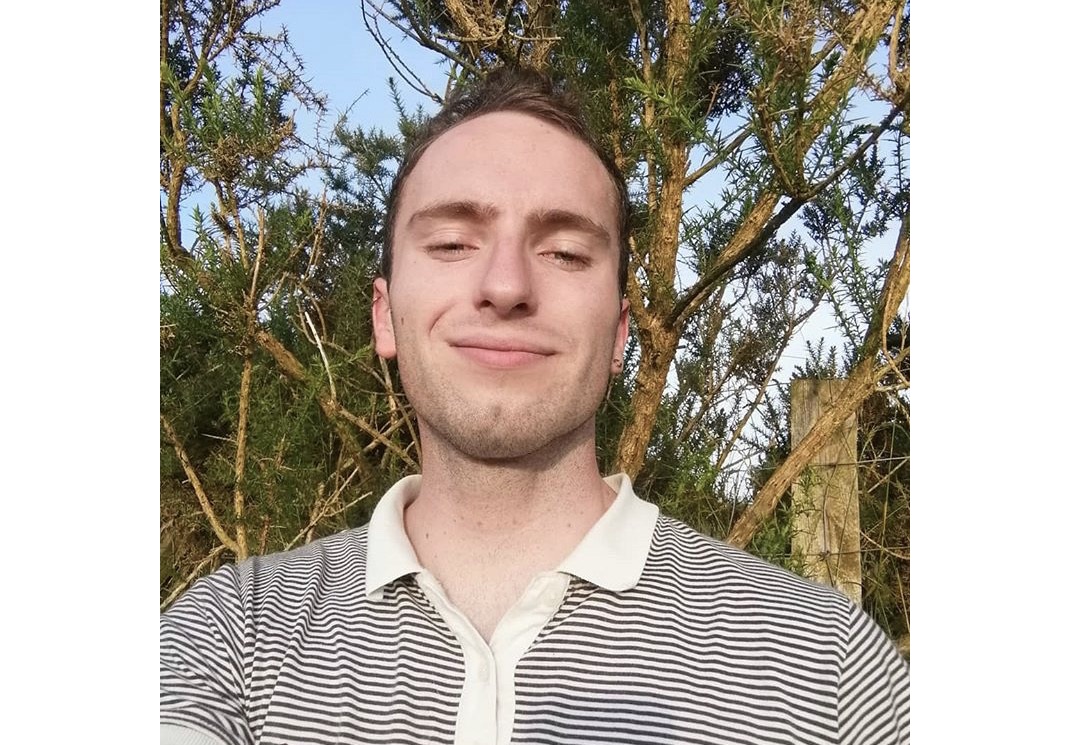
I chose the BA in Media Studies at the University of Groningen
as I’ve always been interested in working within creative
media industries. The degree program offers students the freedom to
express themselves through their research and project work.
Experimentation is encouraged by the lecturers throughout the
program, in this way you get to discover your likes and dislikes,
and choose elective classes based on your vision of your future. At
the beginning of the course, I thought that a degree in Media
Studies only qualified you to become a journalist, but I could not
have been more wrong! As the degree is a blend of theoretical,
methodological and skills classes, you are given a broad set of
tools with which you can become a media professional or scholar. At
the moment I’m interested in doing either an MA in
Journalism, or a ReMA in Arts, Culture, Media here at the
University of Groningen. In the Audiovisual Culture profile,
students engage with all forms of audiovisual texts such as film,
television, and music videos. I am particularly interested in the
intersection of media, art and performance studies. Research in
this area focusses on how the involvement of media technologies
changes our experience of art and the performance arts.
What I love the most about the media department is how youthful and
vibrant it is. The lecturers are enthusiastic and willing to help
you develop and pursue your interests. I chose to study
specifically in Groningen because of its cosmopolitan
atmosphere— I knew that the university would bring me into
contact with more international cultures than if I were to have
studied back home in Ireland. The BA Media Studies is an
internationally-oriented degree, for an international industry. I
hope to become a researcher in the future, or to work as a writer
in a publication house. Within this study, the possibilities are
endless!
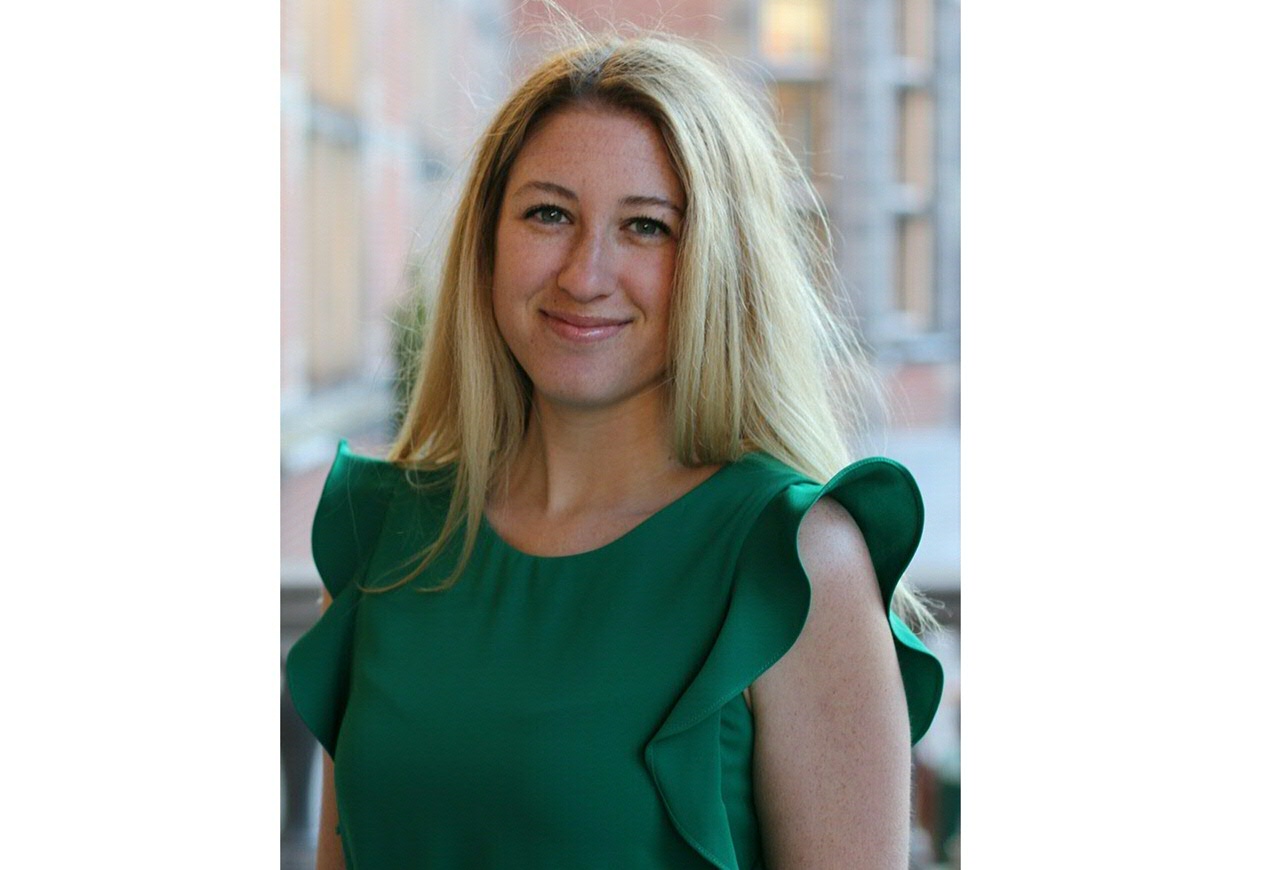
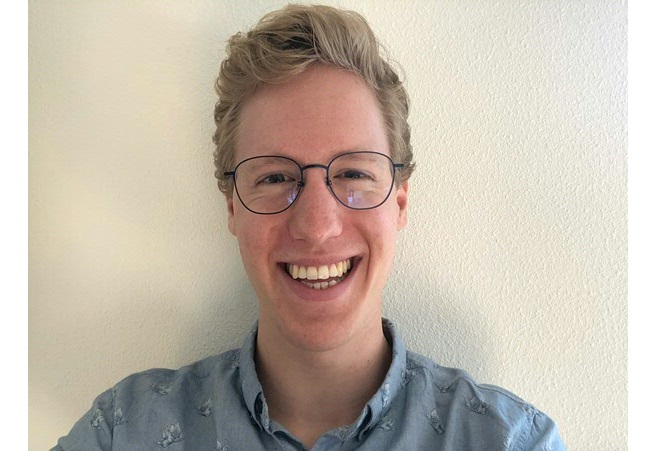
Before I started Media Studies, I thought I had a pretty good idea about what 'media' was. But from the first day on, I got to know about media and everything around them in ways that I had never considered before. It showed me the relevance of studying media in every aspect possible, as it taught me about all the ways media are not only interconnected with our lives, but frequently are an inherent part of our lives and our existence on their own.
The programme touches upon aspects of media far outreaching those of radio, television, newspapers and so-called 'social media'. It makes you aware of the many forms media can take on, how abstract of a word terms such as 'media' or 'culture' actually are, and how they carry far from set definitions.
When I first visited the Open Day, the study representatives clearly emphasized that this study will not make you become a presenter, learn you how to edit videos, or how to direct. And I can confirm that now. But even though this bachelor programme does not specifically teach you how to work in 'the media industry' or how to create a television show, this does not mean that it won't help you in becoming a better creator or media professional. For while I discovered my passion for radio and media in general long before the start of my studies, it is the insights acquired throughout my studies that I take with me every single day, and that help me stand out in the field that I am working in. In my final year I followed an internship at the Dutch national radio station Qmusic, after which I was hired as a radio producer and content director of their daily evening shows. Media Studies has offered me the tools and knowledge to think beyond my own medium and to apply different perspectives in my productions, as well as to remain critical towards the information I receive before deciding to broadcast it to the radio audience.
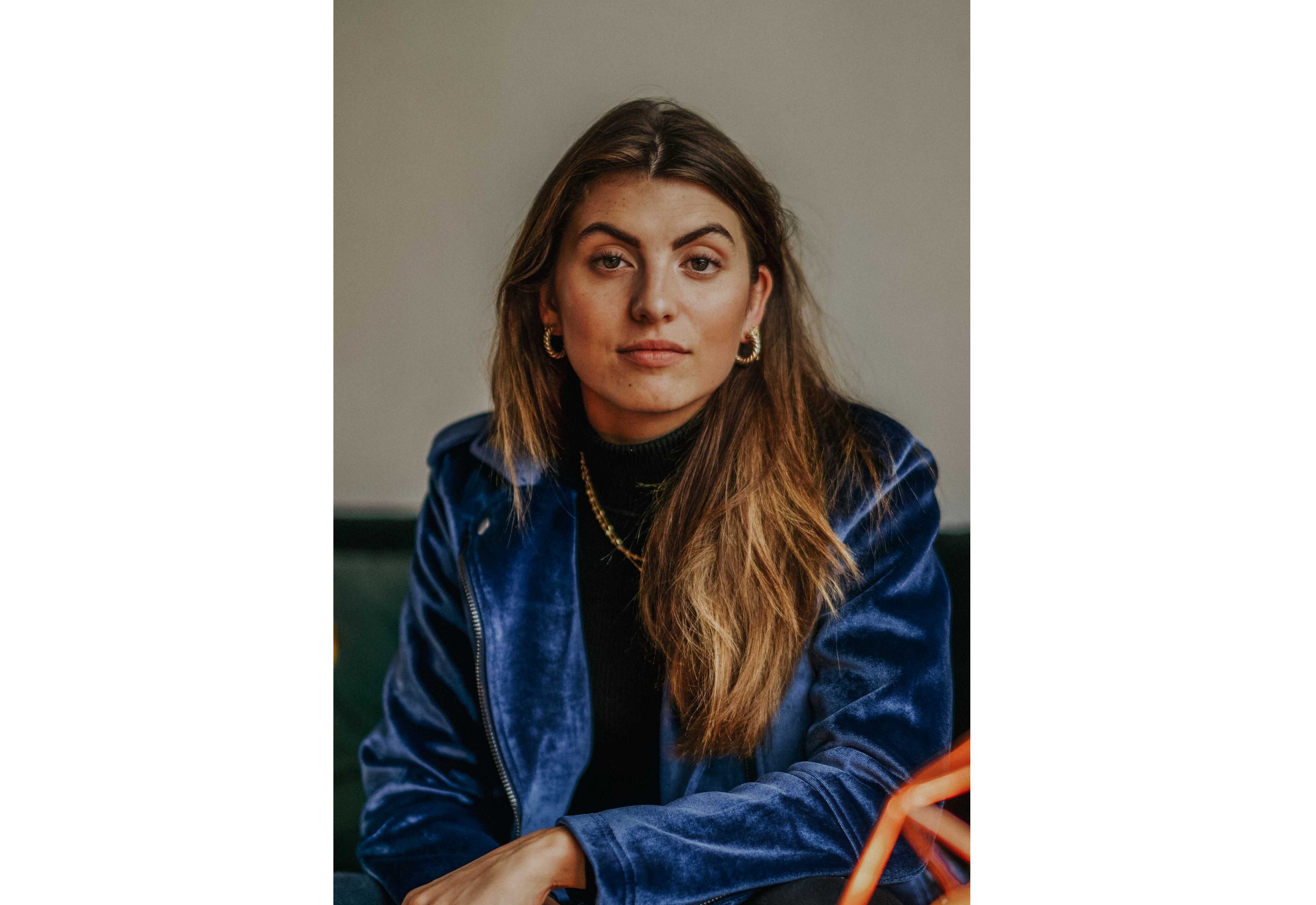
The BA Media Studies allows you to explore a broad variety of topics whereafter you can specialize in a topic of your choosing. I experienced the BA Media Studies as a great balance between theoretical courses that provided me with fundamental knowledge, and the methodology classes that provided me with the practical tools to work with all the theory knowledge acquired. Each course sets the boundaries within which you work, but the assignments and essays leave enough room for you to explore your own interests. I took, and still take, great interest in media representation, identity formation and women’s studies. The BA Media Studies program allowed me to explore each of these interests from a media studies perspective. I am currently in the Research Master program and the broad baseline that the BA Media Studies has provided me with continues to keep me on my toes with regard to my own interests. I am always forcing myself to see different perspectives and ask critical questions: “How do researchers in my field of interest approach this problem?” and, “How does this approach differ from what other researchers in other fields are doing?”. At the same time, the freedom to (further) develop my own interests within the BA Media Studies has enabled me to create my own profile as a researcher.
Are you at secondary school and want to know what studying at university is like? The Media Studies programme is offering a web class! This online course from the University of Groningen is specially designed for secondary school students.
If you are interested in an Media Studies web class, register here.